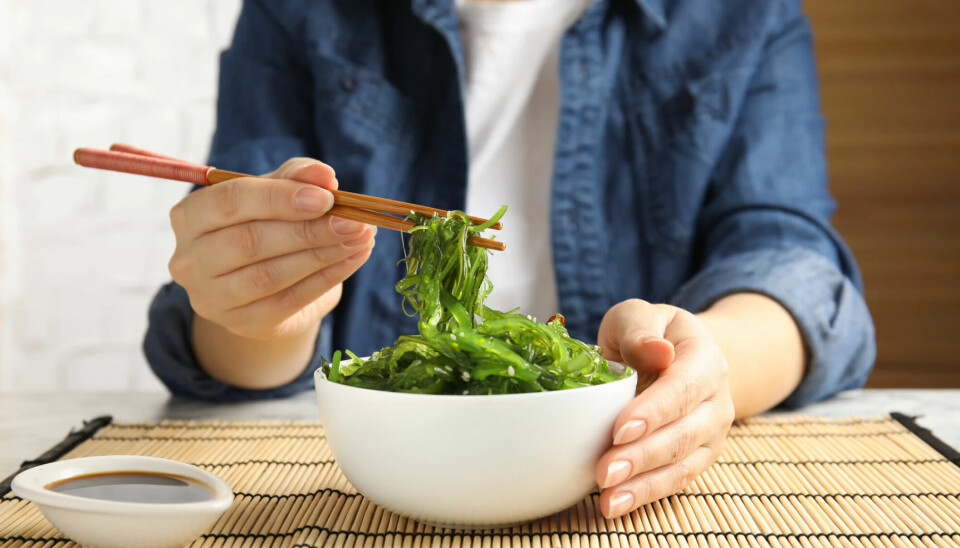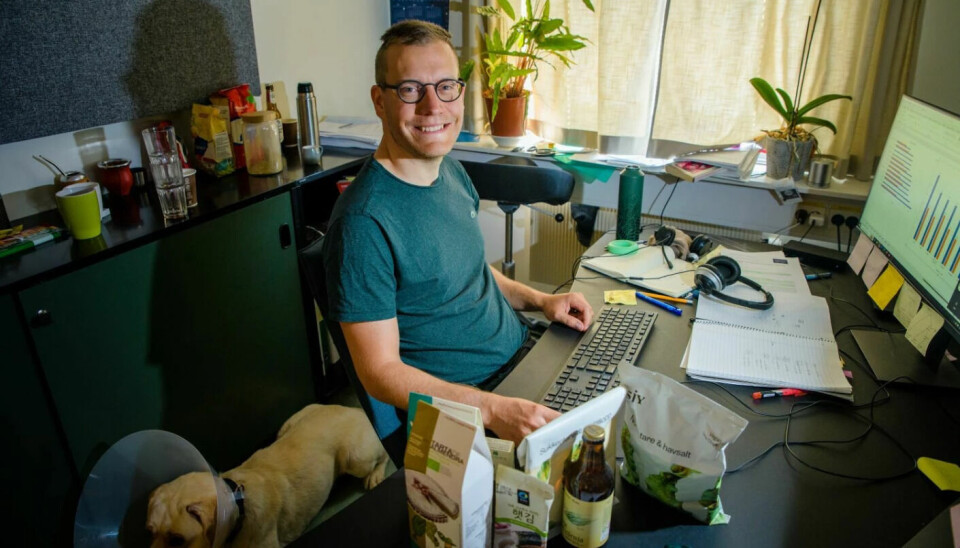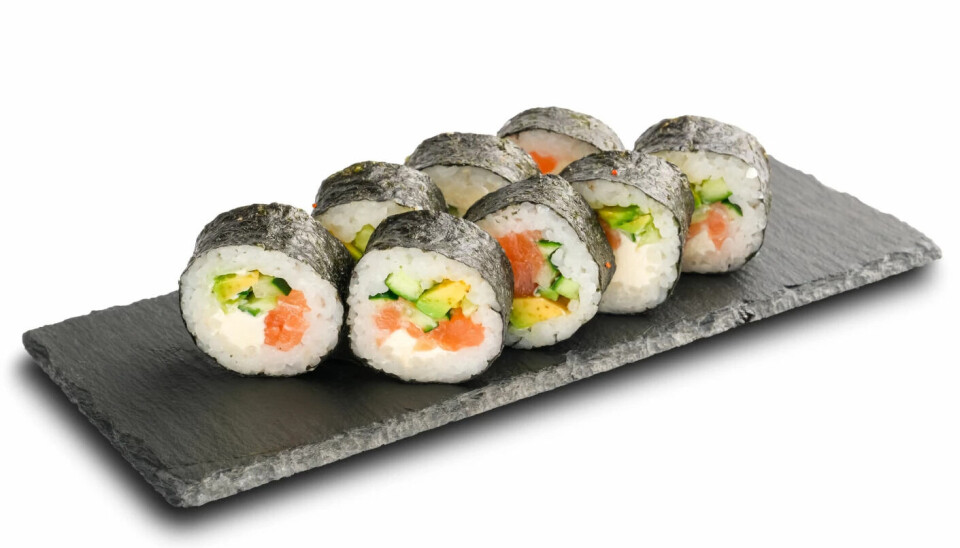THIS CONTENT IS BROUGHT TO YOU BY Nofima The Norwegian Institute of Food, Fisheries and Aquaculture Research - read more

This is why you should eat seaweed
How is it possible to get more people to eat kelp? Health and the environment are the two best arguments.
It is not because it tastes good, and it is not because it is easy to find in stores.
No, the way to get more people to eat seaweed and kelp is that they believe it is healthy and sustainable.
What influences people?
“My goal is not to convince people. It is to understand what influences them,” Florent Govaerts says.
He is a scientist at Nofima, and has just completed his PhD on people’s views about eating green produce from the ocean.
“We have been looking at what influences consumers in Norway and in the UK. The factor that makes people most want to eat seaweed and kelp is that they believe it's good for their health,” he says.
Environment comes in as a strong second:
“The other very important factor is that people feel they have a responsibility to eat seaweed and kelp because it is sustainable and environmentally friendly. This really influences our intentions. Therefore, we also see that those who have environmentally friendly and sustainable values are more positive about buying seaweed and kelp than those who see other values as being more important," Govaerts says.
Hard to find in stores
The problem is that it is difficult to find seaweed and kelp products in stores. Moreover, it is difficult to sell it based on its good taste:
“Many associate food with good taste and buy the products they think are good. The problem with seaweed and kelp is that no one has associations with the taste,” he says.

Most people simply don’t know what seaweed and kelp tastes like.
In addition, the products are difficult to get hold of. At least in the major supermarket chains.
“Here in Tromsø, there are international stores with produce from Asia, but if you want to buy kelp from Norway or if you don’t live in a big city, it is very difficult,” he says.
People think it smells bad
There is also a lack of knowledge about what kelp really is.
For example, many people do not know that the nori sheets used in sushi are a kelp product.

Another prejudice is that seaweed and kelp smell bad. Those who strolled along the shore and smelled whathas washed ashore and is rotting there have noticed that smell – not the fresh, salty smell of kelp that has been harvested to eat.
“In addition, people think it is expensive. Or rather: They believe it is expensive,” the researcher says.
The industry needs to communicate with consumers
His advice to the seafood industry is to provide a lot of good information.
“Those who want us to eat kelp must go out to the media and try to tell us that this is a healthy product that contains a lot of vitamins, minerals and fibre. It is environmentally friendly – you don’t need pesticides or fertilisers," he says.
According to Govaerts, the key is to first get people to understand that it is healthy and environmentally friendly, and then that it can taste good.
"The problem really is that people have so little knowledge,” he says.
Florent Govaerts does not conduct research on the products themselves, but he sees they are lacking information.
“We have to provide information first, but at the same time we need to put some good products on the market. There doesn’t have to be many at first, but a few that everyone likes and knows are healthy,” he says.
Other researchers are working to make the nutritional content of kelp products even better for humans.
“For example, some kelp species contain too much iodine," he says.
He adds that kelp is the same as everything else: If you eat too much, there will be an imbalance. In Asia, however, many people eat seaweed on a daily basis.
“I think we have to try to learn to become just as good at making products from seaweed and kelp as they are in Asia," he concludes.
References:
Cordeiro et al. Branding Nordic Seaweed: An Applied Multimodal Perspective, ABAC Journal, 2022. DOI: 10.14456/abacj.2022.38
Govaerts, F. Factors Influencing Seaweed Consumption: The Role of Values, Self-Identity, Norms and Attitudes, Doctoral Thesis UiT, 2023.
Goaverts, F. & Olsen, S.O. Consumers’ values, attitudes and behaviours towards consuming seaweed food products: The effects of perceived naturalness, uniqueness, and behavioural control, Food Research International, vol. 165, 2023. DOI: 10.1016/j.foodres.2022.112417
Goaverts, F. & Olsen, S.O. Exploration of seaweed consumption in Norway using the norm activation model: The moderator role of food innovativeness, Food Quality and Preference, vol. 99, 2022. DOI: 10.1016/j.foodqual.2021.104511.

This content is paid for and presented by Nofima The Norwegian Institute of Food, Fisheries and Aquaculture Research
This content is created by Nofima's communication staff, who use this platform to communicate science and share results from research with the public. Nofima is one of more than 80 owners of ScienceNorway.no. Read more here.
More content from Nofima:
-
Red algae grown in wastewater from fish-farming facilities could become sustainable salmon feed
-
Pumpkins are good for more than just Halloween decorations
-
This is how temperature affects a salmon's health and growth
-
Study: Omega-3 and zinc is a powerful duo for salmon
-
Fish may turn yellow if frozen too fresh
-
Is it better if food is packaged in plastic or paperboard?





































